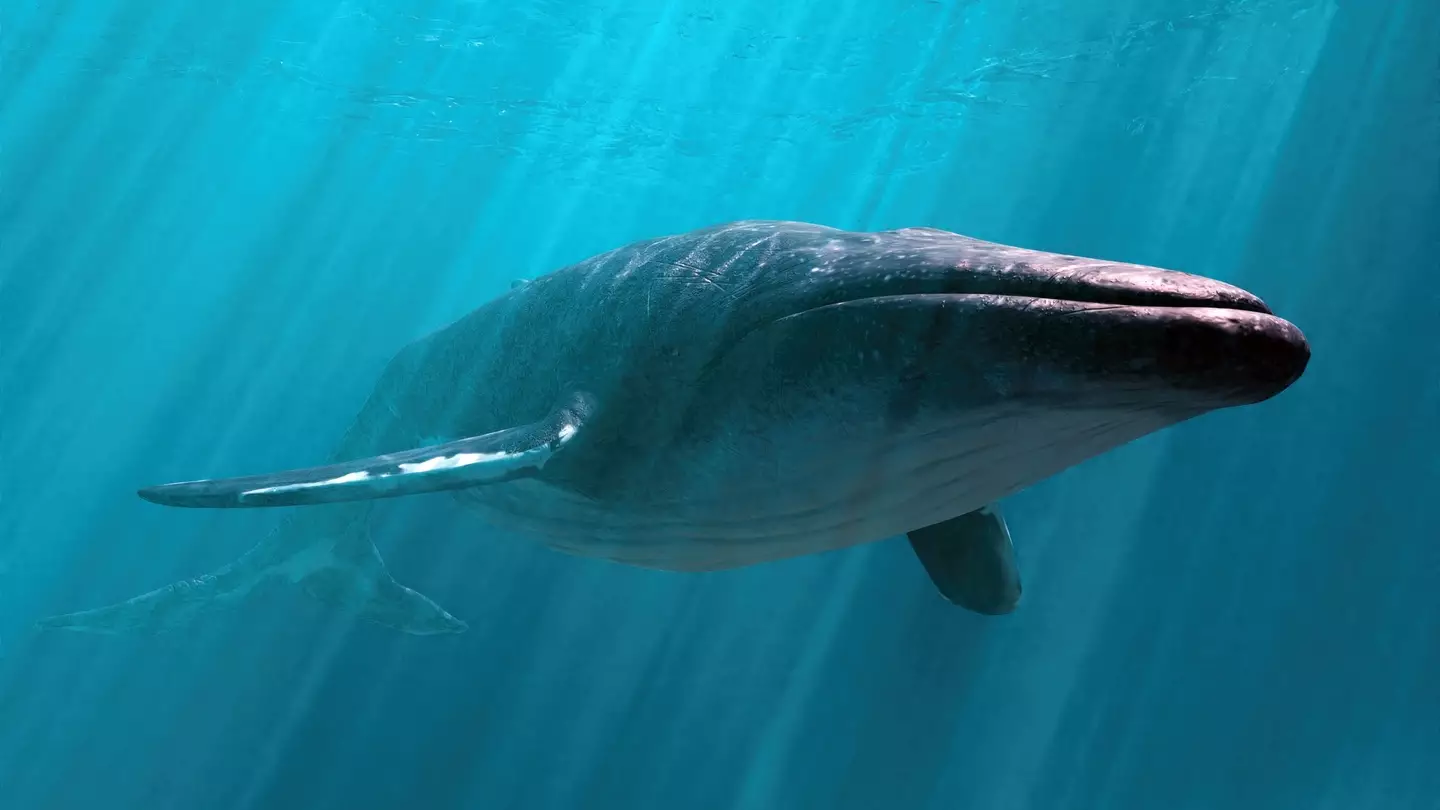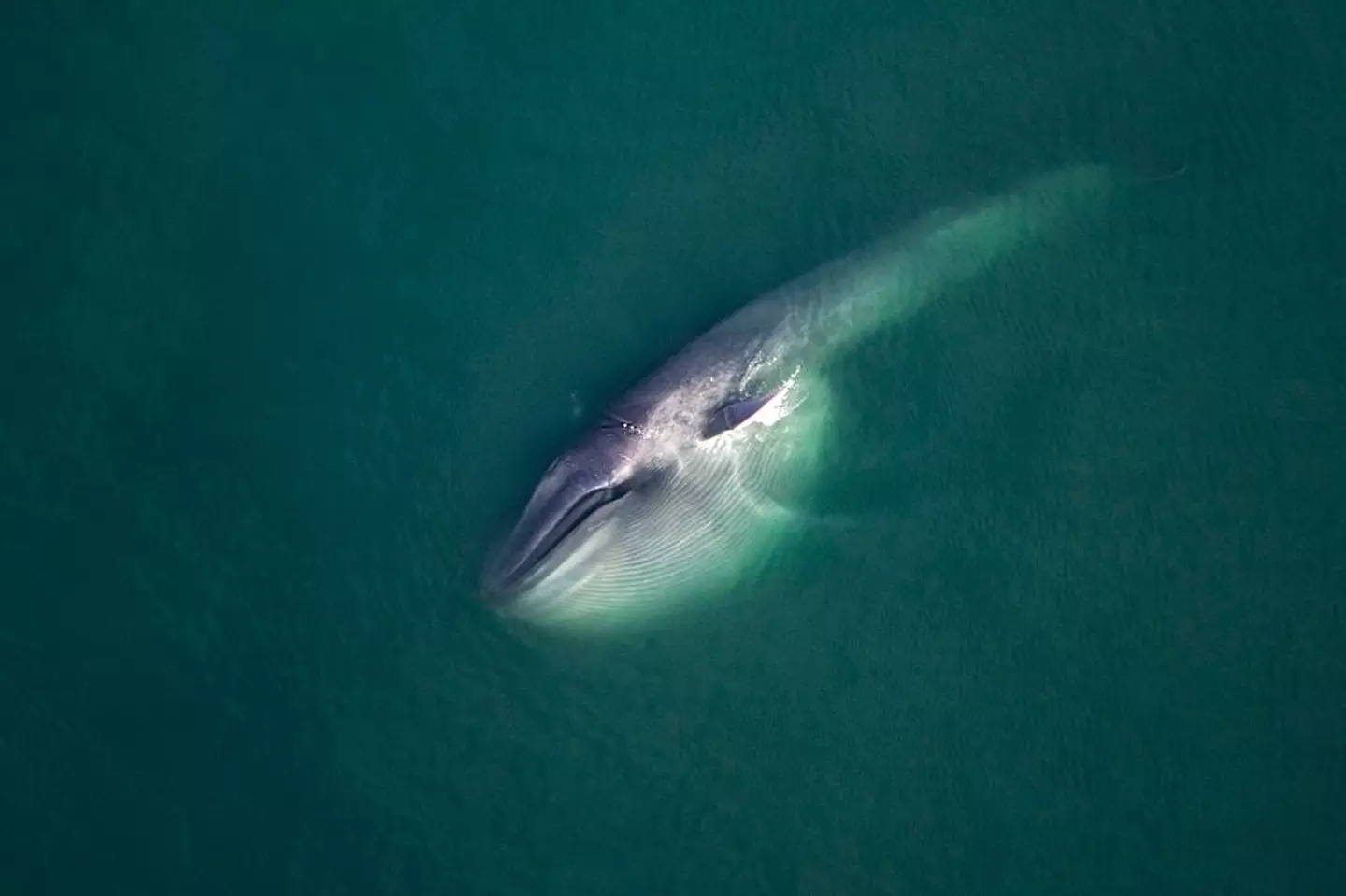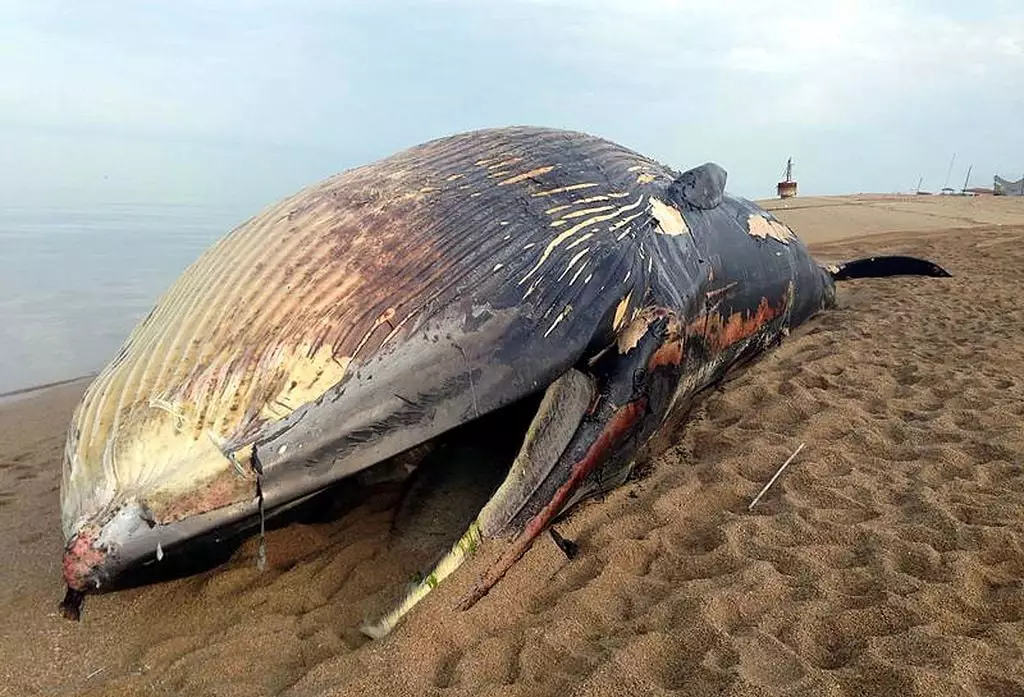
If blue whales were to go extinct, that could signal significant consequences for the ecosystem, according to experts.
They are the largest animals ever known to have lived and are as long as 100 feet, about the length of three school buses.
The giant marine mammals often eat up to four tons of krill (tiny shrimp-like creatures) a day, perhaps explaining why they weigh around 200 tons.
Their tongue alone can weigh as much as an elephant, and their heart is about the size of a small car.
Advert
Despite there being between 10,000 and 25,000 blue whales alive in the ocean today, they are becoming increasingly silent.
“Once you truly start listening to how many things make sounds in the ocean, it’s really amazing what you hear,” Jarrod Santora, an ecosystem oceanographer and research biologist for the National Oceanic and Atmospheric Administration, told National Geographic.
What it means when blue whales go silent

In 2015, researchers tracked whale noises for six years during a massive marine heatwave known as 'The Blob'.
During this heatwave, ocean temperatures spiked, disrupting the food chain and causing a dramatic drop in krill, which they primarily eat.
In simple terms, John Ryan, a biological oceanographer at the Monterey Bay Aquarium Research Institute, told the outlet: “When you really break it down, it’s like trying to sing while you're starving.
“They were spending all their time just trying to find food.”
Scientists said the sudden drop in blue whale noise is a red flag for ocean health, with silence signalling deeper environmental issues.
What happens if blue whales go extinct?

The Animal Welfare Institute points out that saving whales could also help save the planet. However, it is believed that over three million were killed for oil in the 1900s alone.
"Whale fecal plumes contain valuable nutrients like iron, nitrogen, and phosphorus," they explained. "They stimulate production of microscopic marine algae, or phytoplankton, which form the base of many aquatic food chains.
"Whales also transport nutrients in their fecal plumes, urine, sloughed skin, and placental materials horizontally, a phenomenon referred to as the 'whale conveyor belt', as they migrate between nutrient-rich feeding areas and nutrient-limited breeding/birthing areas."
Without blue whales, many marine ecosystems and the species that depend on them would be at risk. And with global warming and an increasing number of heatwaves, whales are more likely to go silent.
“There are whole ecosystem consequences of these marine heat waves,” oceanographer Kelly Benoit-Bird added.
“If they can't find food, and they can traverse the entire West Coast of North America, that is a really large-scale consequence.”
Topics: Animals, Environment, Global Warming